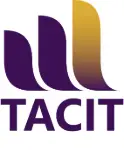A trust is a legal arrangement where assets are managed by appointed trustees for the benefit of chosen beneficiaries. It offers control over when and how assets are distributed, often providing protection from risks and enabling tax-efficient wealth transfer.
Trusts can be established during your lifetime or via your will, and can hold a wide range of assets, from investments and property to business interests and life policies.
Key Benefits:
- Control & flexibility — decide the timing and conditions of asset distribution.
- Asset protection — may shield wealth from creditors, divorce settlements, or care fees (subject to rules).
- Estate & tax planning — potential to reduce inheritance tax when used effectively.
- Support for vulnerable individuals — provide ongoing financial care for minors or those unable to manage wealth.
- Charitable giving — establish a lasting legacy in line with your values.
Types of Trusts include:
- Bare Trust — simple structure where assets pass to beneficiaries at adulthood.
- Discretionary Trust — maximum flexibility with trustee control over distributions.
- Interest in Possession Trust — one beneficiary receives income for life, capital goes to others later.
- Disabled Person’s Trust — protects the interests and benefits of a disabled beneficiary.
- Personal Injury Trust — safeguards compensation while maintaining benefit entitlement.
- Charitable Trust — supports charitable causes with tax advantages.
Tacit’s role in supporting trustees
At Tacit, we provide discretionary investment management for a wide range of trust structures. We work closely with trustees, solicitors, and tax advisers to ensure investment strategies align with the trust’s objectives, legal framework, and beneficiary needs. Assets are securely held by AJ Bell Securities Ltd, ensuring regulatory compliance and strong custodial protection.
Download the full guide for detailed explanations of trust types, tax rules, registration requirements, and how to integrate trusts into your estate planning.

